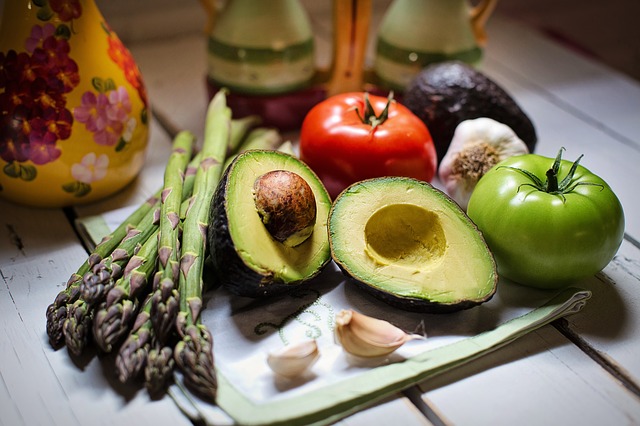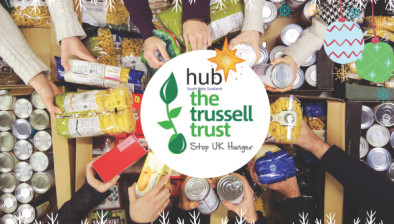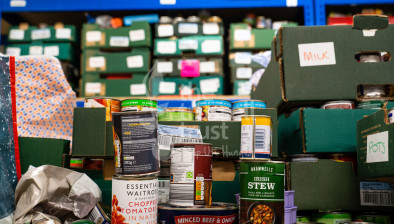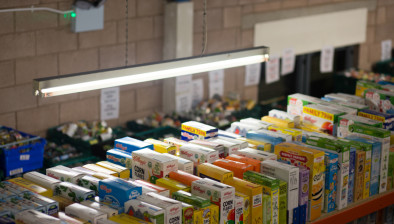Food banks provide almost 200,000 parcels to people across Scotland in past year
New figures released today reveal food banks in the Trussell Trust’s network in Scotland provided more than 197,000 food parcels to people facing financial hardship across Scotland from 1 April 2021 to 31 March 2022.

Alarmingly, more than 70,000 parcels were provided for children.
The figures show that need for emergency food across the charity’s network has decreased in comparison to the same period in 2019/20 (17% lower), with significant numbers of people being helped in the last year by other food aid providers and community-based groups which emerged during the pandemic.
However, it is still significantly higher (31%) when compared to the same period five years ago and food bank managers in Scotland are warning of an accelerating crisis following the cut to Universal Credit and as the cost of living continues to soar.
Need for emergency food in the Trussell Trust’s Scotland network has accelerated throughout the second half of the year. Despite the significant numbers of food aid providers in Scotland which have been meeting increased need, pressure is now building again in the charity’s Scotland network and the falls in provision compared with pre-pandemic levels are gradually being wiped out as need escalates.
As Scotland faces a rapid rise in the cost of living and continues to recover from the devastating effects of the pandemic, the charity says UK, Scottish and local governments need to do more. With over one in three (36%) people on Universal Credit in Scotland already skipping meals, the charity warns that people cannot afford to wait any longer for support.
Dee, 60 from Aberdeen, worked in the building sector but was made redundant last year and is now in receipt of Universal Credit. Dee said: “It’s so disheartening to think that I’m struggling to pay for the essentials and put food on the table, through no fault of my own. I’ve previously had to use a food bank because the price of my weekly shop has gone up and am worried that I may need to use one again. It’s causing me ongoing stress to feel like I’m never getting to the end of it. It’s overwhelming and really drags me down.”
Louise, 45, from North Lanarkshire, has mental health issues and is unable to work. Louise added: “I’m already struggling to make ends meet, so I’m especially worried about what the future looks like with food and energy prices going up. I’m already cutting back on food to put money into the electricity meter and being forced to make impossible decisions between heating and eating. We need the government to treat people with dignity, because everyone should be able to put food on the table.”
Only in October the Chancellor whipped £20 a week away from low-income families across Scotland, the largest cut to welfare since the Second World War. The charity highlights this is on top of a five-year freeze on benefits rates which means these payments are worth 11% less than they were a decade ago.
The charity has warned that this is before the energy price cap rise starts to bite. For most people at risk from soaring living costs – who cannot work or work longer hours due to disability, caring responsibilities or mental health issues – there is very little protection ahead.
While the uprating of some devolved benefits in Scotland by 6% last month was welcome, the charity says it was not enough. As a first step, the charity is calling for the UK government to, as a bare minimum, increase all benefits payments by at least 7%, so more people are able to afford the essentials we all need in life to get by.
The Trussell Trust highlighted that the Scottish Government is expected to publish a national plan to end the need for food banks in Scotland in the autumn, which it welcomes. It is also calling on local government to commit to develop an action plan to end the need for food banks, as local elections fast approach.
But the charity says the Scottish Government must do more to prevent people needing help from a charity to get by, including doubling the Scottish Child Payment to £40 a week and providing enough funding to the Scottish Welfare Fund to meet demand for help in a crisis.
Polly Jones, head of Scotland at the Trussell Trust, commented: “We should all be free from hunger. No one should be pushed deeper into poverty without enough money for the things we all need. And yet people are telling us they’re skipping meals to feed their children and turning off the heating so they can afford internet access for their kids to do their homework.
“This isn’t right – and food banks in our network are telling us this is only set to get worse as their communities are pushed deeper into financial hardship. No one’s income should fall so dangerously low that they cannot afford to stay fed, warm and dry.
“But there is still time for governments at every level to do the right thing, and ensure that people at the sharpest end of the crisis are able to afford the essentials we all need in life. That’s why we are urging the UK government to make benefits realistic for the times we face, and calling on the Scottish Government to use its powers to do all it can to support people on the lowest incomes.”








